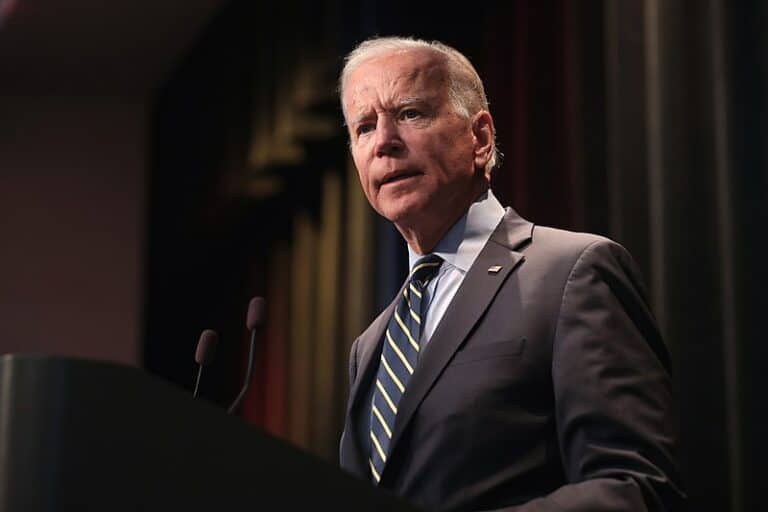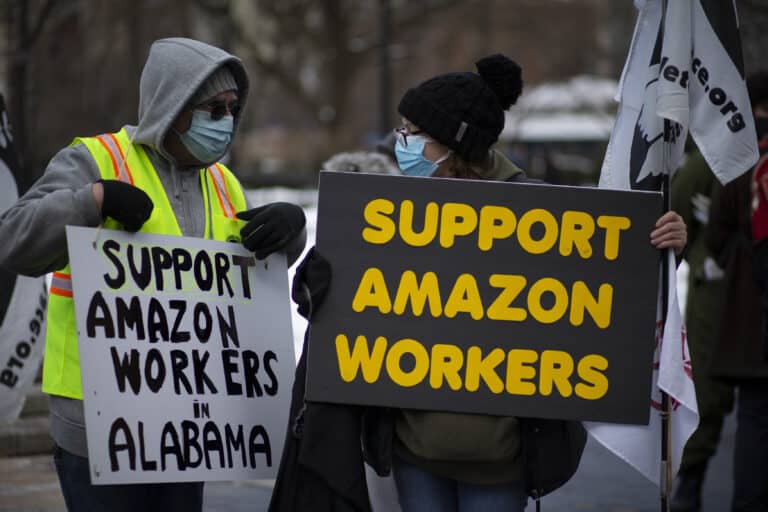
Andrew Strom is a union lawyer based in New York City. He is also an adjunct professor at Brooklyn Law School.
One infuriating aspect of federal labor law is that the remedy for an employer’s unlawful refusal to bargain is just an order requiring the employer to bargain. So when an employer illegally withdraws recognition from a union, it has little incentive to settle because there is no mounting liability, and each additional day that the litigation lasts is another day that the employer gets to forestall bargaining. A union’s only recourse is to get the National Labor Relations Board to seek a preliminary injunction to order the employer back to the bargaining table. A recent decision by the Ninth Circuit in Hooks v. Nexstar Broadcasting, Inc. threatens to make it even harder to obtain preliminary relief, and it is a reminder of the urgent need for the Board to devise a meaningful remedy for an employer refusal to bargain in good faith.
In 2017, Nexstar Broadcasting acquired a television station where the workers were represented by the Communication Workers of America. Nexstar adopted the existing collective bargaining agreement, but when the CBA expired, Nexstar made unlawful unilateral changes to workers’ terms and conditions, refused to provide information to the union, and illegally disciplined a union executive board member. In January 2020, Nexstar told the union that it was withdrawing recognition. The union promptly filed an unfair labor practice charge. After conducting an investigation, the NLRB Regional Director issued a complaint against Nexstar on June 30, 2020, but waited seven months before seeking a preliminary injunction to order Nexstar to resume recognizing the union while the litigation proceeded.
To obtain a preliminary injunction, the Regional Director needed to show both a probability of success on the merits and a likelihood of irreparable harm. The Regional Director easily demonstrated that he was likely to succeed on the merits. As for irreparable harm, the Ninth Circuit had made the district court’s work easier in a 2011 decision, Frankl v. HTH Corporation. There, the court explained that “absent some unusual circumstance,” a district court may infer that a failure to bargain in good faith will cause irreparable injury to union representation. The court offered two reasons why this inference is appropriate. First, since workers join unions to secure collective bargaining, an unremedied refusal to bargain discredits the union in the eyes of the employees, and “the spark to organize is extinguished.” Thus, without preliminary relief, by the time bargaining resumes, the union will likely be in a weakened position. Second, because the Board does not order backpay or damages for the loss of economic benefits that might have been obtained if the employer had bargained in good faith, the workers will not be made whole for the denial of their right to bargain.
In Nexstar, there was no evidence in the record that the union had already lost support due to the employer’s illegal acts, but the district court drew the inference that the Ninth Circuit had instructed was appropriate, finding that there would be irreparable harm in the absence of an injunction. Then, on appeal, the two Republican appointees on the panel essentially overruled HTH Corp. The panel majority decided that since there was no record evidence that the union had already lost support, the district court must have misread HTH Corp. as creating a mandatory presumption that required it to infer irreparable harm. Of course, there would be no need for the district court to draw an inference if the Regional Director had introduced evidence of loss of support. So, according to these two right-wing judges, the court may draw an inference that a violation will lead to irreparable harm only in situations where the inference is superfluous.
Under current law, it is simply a fact that an employer’s refusal to recognize and bargain with its employees’ chosen union causes irreparable harm. The Supreme Court recently held that landlords suffered irreparable harm from an eviction moratorium because they were deprived of rent payments “with no guarantee of eventual recovery.” Even if an employer’s illegal delay of bargaining did not cause a union to lose strength, the union would have no way to compel the employer to compensate the workers for the time they were deprived of their bargaining rights. The NLRB’s General Counsel has sought to remedy this gap in the law by asking the Board to overrule its fifty year-old decision in Ex-Cell-O. In Ex-Cell-O, the Board decided that it could not order a monetary remedy for a failure to bargain because it would be too speculative to try to measure the damages.
To borrow from Justice Alito, Ex-Cell-O “was egregiously wrong from the start. Its reasoning was exceptionally weak, and the decision has had damaging consequences.” As a starting point, Ex-Cell-O ignored a longstanding principle regarding uncertain damages. Long ago, in an antitrust case, the Supreme Court explained that where the amount of damages can’t be ascertained with certainty, “it would be a perversion of fundamental principles of justice to deny all relief to the injured person, and thereby relieve the wrongdoer from making any amend for his acts.” The Eleventh Circuit applied this principle in affirming a $1.7 million jury verdict against a union in a case involving unlawful secondary picketing. The jury had awarded damages based on a contractor’s lost opportunities to obtain work. The court rejected the union’s argument that the damages were too speculative, explaining, “[i]f primary employers cannot recover damages for lost opportunities to bid, unions will have every incentive to engage in secondary boycotts because the unions ordinarily will suffer, at most, minimal financial liability, no matter how strong the proof of greater injury.” The exact same holds true for employer refusals to bargain.
While the argument for awarding damages for the lost opportunity to bargain is strong, the challenge is coming up with the right measure of those damages. The Board’s General Counsel has suggested that the Board could look to comparator contracts to determine the wages and benefits the union might have obtained if the employer had bargained in good faith. While that approach could be defended on the principle that uncertainty should be construed against the wrongdoer, true comparators may be hard to find, and hostile judges might deny enforcement on the grounds that nothing in the Act compels an employer to agree to any particular proposal. At the same time, the NLRA contains a finding that wage rates are depressed when workers are deprived of the opportunity to engage in collective bargaining. One extremely conservative way to measure damages when an employer refuses to bargain in good faith is to look to the total amount of money the employer has spent in its effort to resist unionization. A rational employer would not spend more money fighting unionization than the employer would expect to pay as a result of its employees unionizing. That could at least be the starting point for damages, and both the employer and the union could have an opportunity to explain why that amount would be either excessive or insufficient.
Any attempt to measure the damages from a delayed opportunity to bargain is going to be imperfect, but the failure to award any damages makes a mockery of the right to bargain collectively.










Daily News & Commentary
Start your day with our roundup of the latest labor developments. See all
July 4
The DOL scraps a Biden-era proposed rule to end subminimum wages for disabled workers; millions will lose access to Medicaid and SNAP due to new proof of work requirements; and states step up in the noncompete policy space.
July 3
California compromises with unions on housing; 11th Circuit rules against transgender teacher; Harvard removes hundreds from grad student union.
July 2
Block, Nanda, and Nayak argue that the NLRA is under attack, harming democracy; the EEOC files a motion to dismiss a lawsuit brought by former EEOC Commissioner Jocelyn Samuels; and SEIU Local 1000 strikes an agreement with the State of California to delay the state's return-to-office executive order for state workers.
July 1
In today’s news and commentary, the Department of Labor proposes to roll back minimum wage and overtime protections for home care workers, a federal judge dismissed a lawsuit by public defenders over a union’s Gaza statements, and Philadelphia’s largest municipal union is on strike for first time in nearly 40 years. On Monday, the U.S. […]
June 30
Antidiscrimination scholars question McDonnell Douglas, George Washington University Hospital bargained in bad faith, and NY regulators defend LPA dispensary law.
June 29
In today’s news and commentary, Trump v. CASA restricts nationwide injunctions, a preliminary injunction continues to stop DOL from shutting down Job Corps, and the minimum wage is set to rise in multiple cities and states. On Friday, the Supreme Court held in Trump v. CASA that universal injunctions “likely exceed the equitable authority that […]